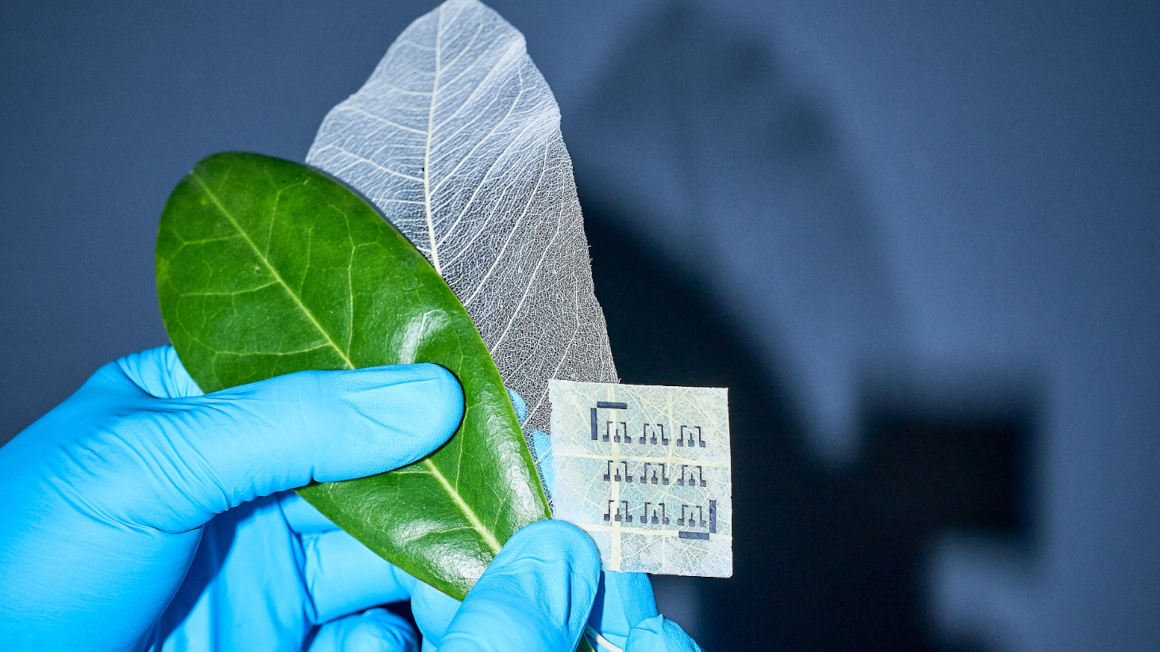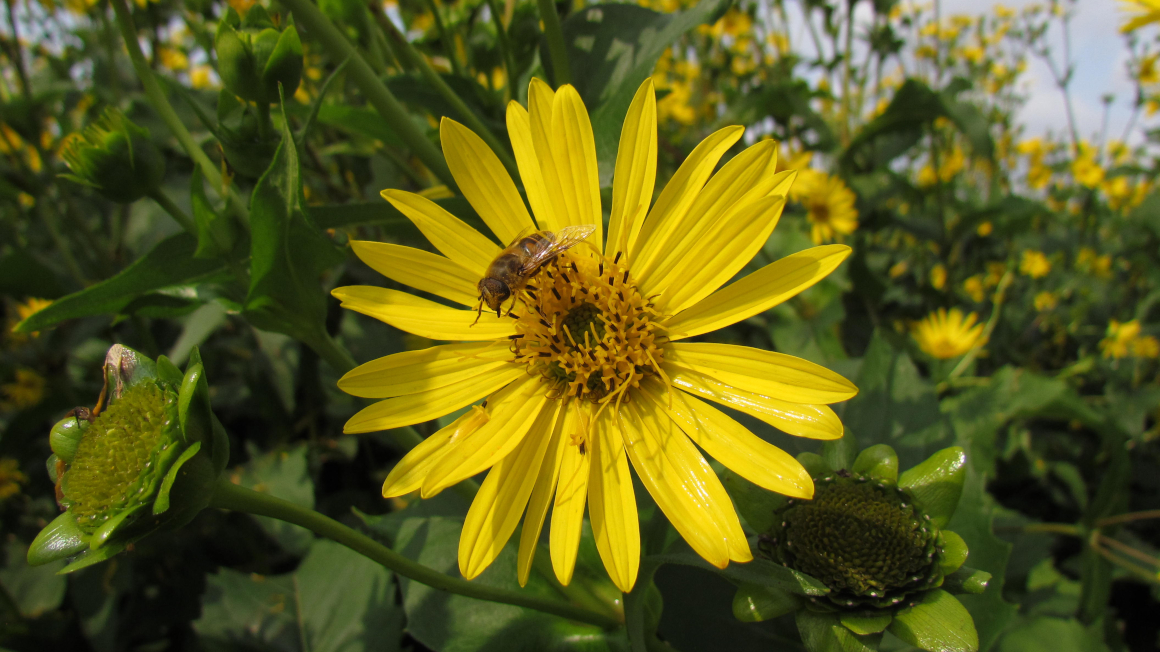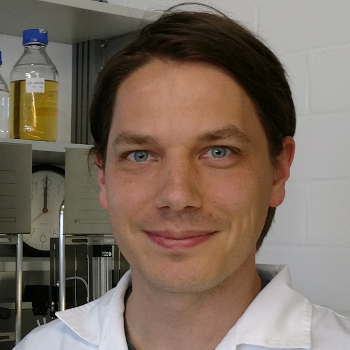Joachim Herz Prize for circuit boards made from leaves
This year's Joachim Herz Prize, worth €500,000, goes to physicist Hans Kleemann from TU Dresden for developing a bio-based and recyclable printed circuit board.

Whether in smartphones or computers, printed circuit boards are found in almost all electronic devices. They are made from non-renewable raw materials such as glass fibres and epoxy resin and are difficult to recycle. The figures speak for themselves: around 60% of the 62 million tonnes of electronic waste generated each year is circuit boards.
Hans Kleemann, research group leader at the Integrated Centre for Applied Physics & Photonic Materials at Dresden University of Technology, wants to change that. His work focuses on the question of how electronic devices can be designed sustainably. The Dresden physicist has now been awarded the Joachim Herz Foundation's research prize in the field of biotechnology for the development of a bio-based and recyclable printed circuit board. The prize is endowed with 500,000 euros and was awarded on 30 September in Hamburg.
The vascular system of leaves as a natural scaffold
The innovation is based on work carried out as part of the ‘UnbeLEAFable’ project, which Kleemann is leading. The researcher drew inspiration from nature, in this case from the structure of leaf skeletons. The bio-based circuit board uses the delicate vascular system of leaves as a natural framework. With the help of yeast or bacteria, the leaves are transformed in such a way that a lignin scaffold remains. The scaffold is then filled with bio-based plastics to create a novel material for sustainable printed circuit boards that could replace conventional components.
Biodegradable printed circuit board
According to the Joachim Herz Foundation, this would require less energy and no fossil raw materials during production, and the resulting printed circuit boards would be biodegradable, meaning that the remaining components could be reused.
The prize money will enable Kleemann and his team to continue their research until a prototype is developed that could later be put into practice. ‘The funded project now gives us the opportunity not only to develop recyclable printed circuit boards from natural leaves, but also to conduct completely new research into a wide range of material and process-specific aspects towards a fully circular economy,’ says Kleemann.
Game changer for the electrical industry
‘If Dr Kleemann succeeds in putting his highly innovative project into practice, it will be a real game changer for the electrical industry and take us a big step forward on the path to a circular economy, which is so important for our environment,’ says Sabine Kunst, Chair of the Joachim Herz Foundation.
The Joachim Herz Foundation awards the prize to outstanding researchers who use interdisciplinary approaches to provide impetus for a sustainable future. The prize is awarded annually, alternating between the natural sciences and economics.
bb


